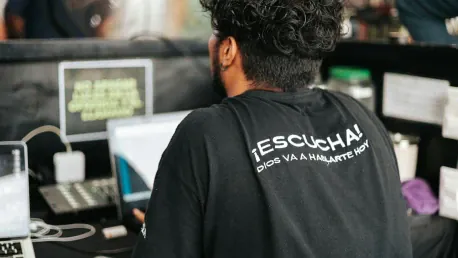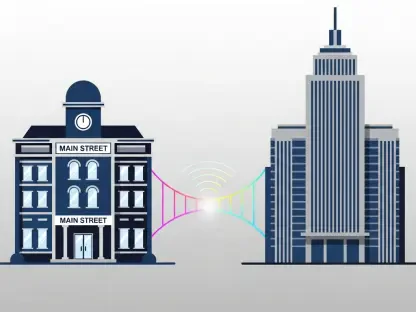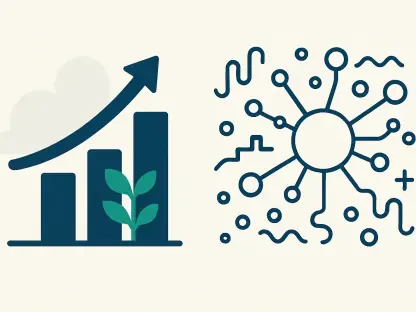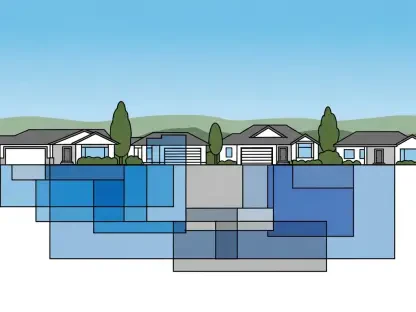Engaging participants from diverse backgrounds, the UNDP Tanzania Insurance Innovation Challenge 2025 is set to leverage innovative solutions to enhance financial resilience and promote inclusive growth within Tanzania. This dynamic event, operating under a hackathon modality, presents a crucial opportunity for collaborative problem-solving in the insurance sector.
The Collaborative Platform for Innovation
Diverse Participation and Co-creation
The hackathon invites participants from various sectors to come together and co-create solutions. This collaborative approach aims to address specific insurance challenges faced by Tanzanians, improving accessibility, affordability, and overall financial protection. By bringing together individuals from different professional backgrounds, including insurance intermediaries, insur-techs, fin-techs, and distribution channels, the event fosters a rich environment for idea exchange and innovative thinking. Participants are encouraged to leverage their unique skills and perspectives to tackle pressing issues within the Tanzanian insurance landscape.
The focus on co-creation and diversity ensures that the solutions generated are not only innovative but also practical and adaptable to the local context. This approach promotes the development of solutions that are responsive to the varied needs of Tanzania’s population, enhancing the overall impact of the hackathon. By working collaboratively, participants can combine their expertise to create comprehensive solutions that address multiple facets of the insurance challenges faced by Tanzanians.
Focus Areas and Challenges
Participants work intensively over a short period to develop innovative ideas targeting key issues such as limited access to health coverage, climate change impacts, disaster resilience, and protection for small and medium-sized enterprises. The hackathon format encourages rapid ideation and prototyping, enabling teams to quickly test and refine their ideas. This intensive approach helps ensure that the solutions developed are both innovative and practical, capable of being implemented effectively in the real world.
The specific challenges addressed by participants reflect some of Tanzania’s most pressing insurance needs. Limited access to health coverage remains a significant barrier for many Tanzanians, particularly those in rural areas. Climate change poses increasing risks to communities, necessitating innovative insurance solutions to mitigate its impacts. Disaster resilience is another critical area, with a growing need for strategies to protect vulnerable populations. Small and medium-sized enterprises are crucial to Tanzania’s economy, yet they often lack adequate insurance coverage. The hackathon aims to develop solutions that can provide these businesses with the protection they need to thrive.
The Incentives for Participation
Prize Money and Technical Support
One of the primary incentives driving participation is the significant prize money awarded to the winning team. The overall winning solution receives 30,000,000 Tanzanian Shillings and comprehensive technical assistance for six months, ensuring the proposed solutions are viable and scalable. This substantial financial reward not only motivates participants to put forward their best ideas but also provides the necessary resources to bring those ideas to fruition. The combination of monetary support and technical assistance helps ensure that the winning solutions can be effectively developed and implemented.
The technical support provided to the winning team covers a wide range of areas critical to the success of their solution. This includes strategic management, business model development, market research, process simplification, digitalization, technology, product design, reinsurance strategies, digital solutions, social marketing, and access to global capacity-building and mentorship programs. By addressing multiple aspects of the solution’s development and implementation, this support helps ensure that the winning ideas are not only innovative but also practical and scalable.
Areas of Assistance
Technical support provided through the hackathon is designed to cover a comprehensive range of areas essential for the successful development and implementation of insurance solutions. Strategic management assistance helps teams refine their vision and develop a clear plan for achieving their goals. Business model development ensures that the solutions are economically viable and sustainable in the long term. Market research provides valuable insights into the needs and preferences of potential customers, helping teams tailor their solutions to meet those needs.
Process simplification and digitalization are critical for creating efficient, user-friendly solutions that can be easily adopted by both insurance providers and customers. Technology and product design support helps teams develop innovative solutions that leverage the latest advancements in the field. Reinsurance strategies are essential for managing risk and ensuring the long-term viability of the solutions. Digital solutions and social marketing assistance help teams effectively promote and distribute their solutions, reaching a wider audience and maximizing their impact. Access to global capacity-building and mentorship programs provides participants with ongoing support and guidance, helping them navigate challenges and continuously improve their solutions.
Criteria and Evaluation
Rigorous Evaluation Process
Applications for the Insurance Innovation Challenge are judged based on several rigorous criteria, ensuring that the selected solutions are transformative and impactful. These criteria include innovation and disruptiveness, team composition, traction, impact and scale, sustainability, unique selling proposition, and risk mitigation. The evaluation process is designed to identify solutions that are not only innovative but also practical and capable of creating significant positive change within the Tanzanian insurance sector.
Innovation and disruptiveness are key criteria, as the challenge seeks solutions that introduce new approaches or significantly improve existing models. This emphasis on innovation ensures that the selected solutions can address the unique challenges faced by the Tanzanian insurance market. The team composition is also crucial, with the evaluation considering the technical and commercial strengths, diversity, and capacity of team members to deliver excellence based on the solution presented. Traction is assessed based on evidence of milestones, success, and progress achieved, demonstrating the solution’s potential for real-world impact.
Long-term Sustainability and Scalability
Participants must focus on the long-term sustainability and scalability of their solutions. Innovations should not only address current needs but also have the potential to grow and evolve, reaching a wider audience over time. The evaluation criteria include the potential for social and commercial impact, scalability, and expansion beyond Tanzania, evidenced through a clear distribution plan. This focus on scalability ensures that the solutions developed through the hackathon can create lasting change and benefit a large number of people.
Sustainability is another critical criterion, with the evaluation considering the viability of the business model and revenue generation strategy. Solutions must be economically viable to ensure their long-term success and impact. The unique selling proposition is also assessed, with evaluators looking for the uniqueness, innovation, and impact of the solution. Risk mitigation strategies are considered to ensure that potential negative impacts are addressed, and the solutions can be implemented effectively and safely.
Encouraging Practical and Effective Solutions
Targeting Underserved Populations
The Insurance Innovation Challenge encourages solutions that address gaps in affordability, accessibility, and awareness within underserved and excluded populations. These innovations should aim to prevent risks, reduce them, and provide financial protection for those with limited access to existing insurance products. By targeting these populations, the challenge seeks to create inclusive solutions that benefit the most vulnerable members of society.
Addressing the needs of underserved populations requires innovative thinking and a deep understanding of the unique challenges they face. Participants are encouraged to develop solutions that are not only innovative but also practical and adaptable to the specific context of these populations. This includes considering factors such as affordability, accessibility, and cultural relevance. By focusing on these key areas, the challenge aims to create solutions that can make a real difference in the lives of underserved Tanzanians.
Prototype Testing and Beyond
Solutions submitted to the Insurance Innovation Challenge must be at least prototype-tested or at the MVP (Minimum Viable Product) stage, ready for real-world testing and feedback. This requirement ensures that the solutions are practical and feasible, with the potential for real-world impact. Exceptionally promising ideas at the proposal stage may also be considered if they present a well-defined roadmap and technical feasibility. This allows for the inclusion of innovative ideas that may still be in the early stages of development but show significant promise.
By requiring solutions to be at least prototype-tested, the challenge ensures that the ideas submitted have been rigorously evaluated and have demonstrated potential for success. This focus on practical, tested solutions helps ensure that the innovations developed through the hackathon can be effectively implemented and scaled. Real-world testing and feedback are critical for refining and improving the solutions, ensuring that they are effective and meet the needs of the target populations.
Transforming the Insurance Landscape
Introducing New Approaches
Innovations should introduce new approaches or significantly improve existing models to enhance insurance accessibility and effectiveness. The aim is to provide measurable social and economic impact, particularly in addressing climate risks, health protection, and resilience for small businesses. By introducing new approaches and improving existing models, the challenge seeks to create a more inclusive, effective insurance sector that can better serve the needs of all Tanzanians.
Innovative solutions can take many forms, from leveraging new technologies to developing novel business models. The key is to create approaches that are not only innovative but also practical and scalable. By focusing on measurable social and economic impact, the challenge ensures that the solutions developed have the potential to make a real difference in the lives of Tanzanians. This includes addressing critical issues such as climate risks, health protection, and the resilience of small businesses, which are essential for promoting inclusive growth and financial resilience.
Promoting Inclusive Growth
Engaging participants from diverse backgrounds, the UNDP Tanzania Insurance Innovation Challenge 2025 is poised to leverage innovative solutions to enhance financial resilience and foster inclusive growth within Tanzania. This dynamic event, conducted in a hackathon format, offers a vital platform for collaborative problem-solving in the insurance sector. By bringing together a wide array of experts, entrepreneurs, and developers, the challenge aims to develop groundbreaking insurance products and services that can address the unique needs of Tanzanians.
The focus is not just on technological advancements but also on creating sustainable and scalable insurance solutions that can reach underserved communities. Participants will have the chance to collaborate, brainstorm, and pitch their ideas to a panel of industry leaders and stakeholders. The ultimate goal of the challenge is to drive meaningful change and make insurance more accessible and beneficial for all segments of Tanzanian society. Through this innovative approach, the UNDP aims to build a more resilient and inclusive financial ecosystem in Tanzania.









